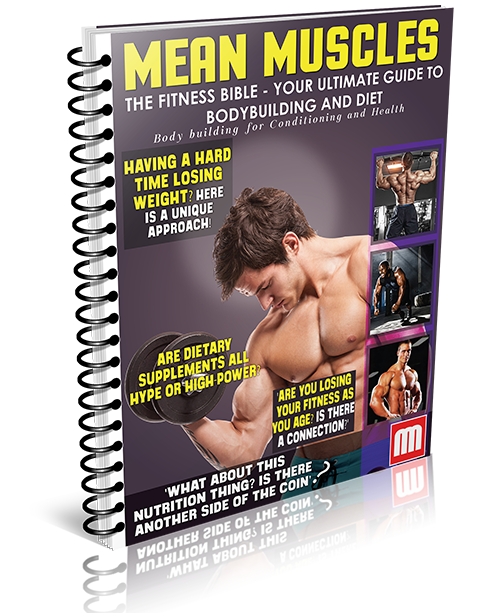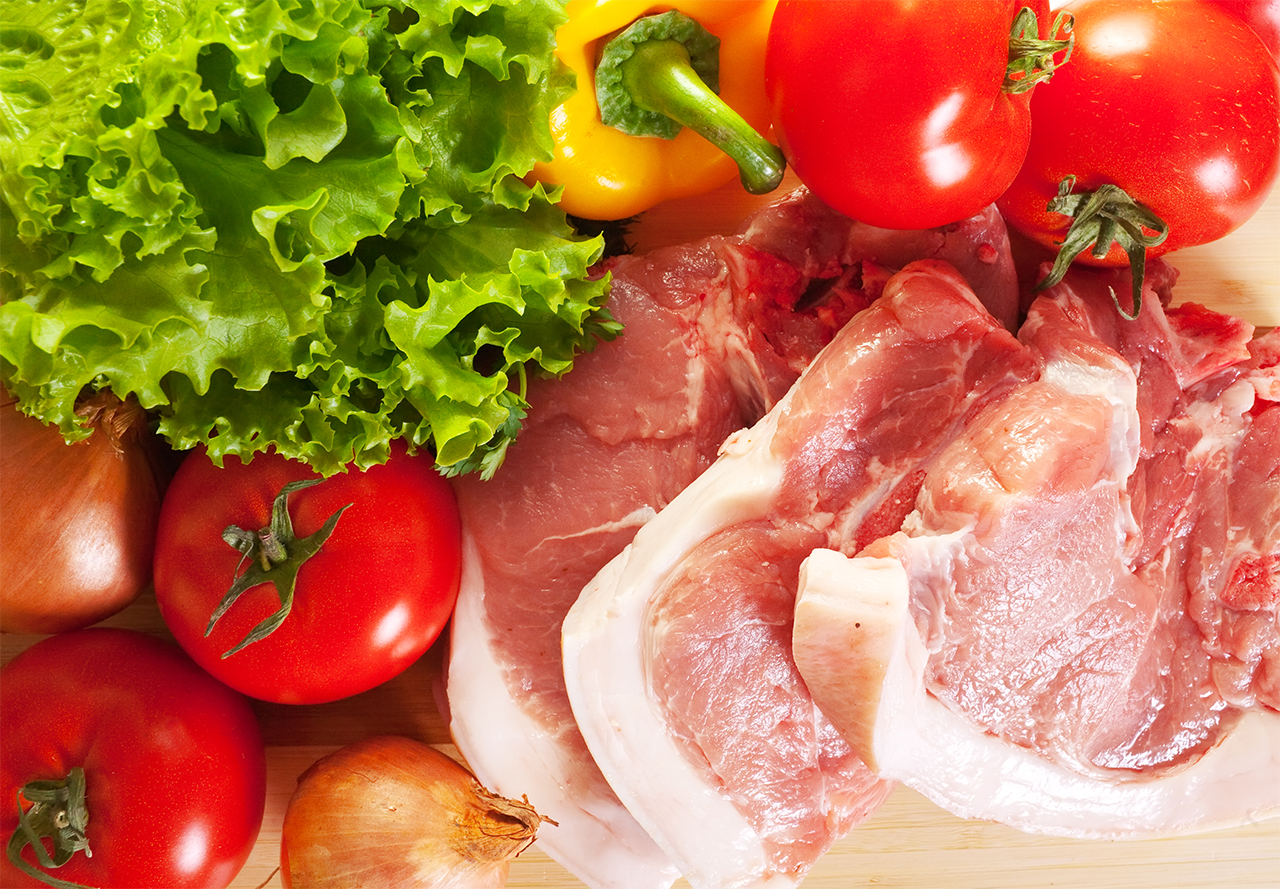Many people have trouble choosing which foods to include in their diets, as every health magazine, website or social media page can give a ton of nutrition advice, which are often different and sometimes contradicting.
Most people who have chosen to take a step towards looking and feeling great, have stumbled upon the question of eating. Indeed, healthy eating is exceedingly important, when it comes to maintaining overall body wellness.
Now, the purpose of this article is not to give any specific diet plan but to help you create your own unique one, so, let’s get right to it.
Do not over-complicate it
What I mean is instead of rushing into an adventurous wine-and-water-only diet, you should start with the basics. The principles are simple, logical and applicable. It is important to teach yourself to listen to your body’s needs – which foods are good for it, which not so much, which gives it tone, energy, and help it throughout the day, which harm it.
As we know, the perfect, unified diet plan that works for everyone does not exist.
Every person has different nutrition requirements and preferences, which depend on a number of factors like age, height, weight, levels of physical activity and personal taste.
Your body is an amazing machine
We’ve all heard about or know a person who “eats everything and looks great”. Why this happens is not in the scope of this article. However, what’s important is this – look at yourself! Everyone is an amazing machine. Indeed, people have common physiology, but it differs from person to person.
Quality and type of food
What’s most important, is to change the type and quality of the foods you buy. Coming next are calories and counting them. Remember – do not over-complicate it! This is a solid base to build on.
Do not overthink when you eat. It is just a physiological function. Indeed, major, but not the only one. Create your own routine and just enjoy.
Eat natural foods
What are natural foods?
Natural foods are the ones that don’t require a whole page to list all the ingredients.
So, for example, a fair comparison would be Butter and Margarine.
“Butter: milk fat (cream), some salt”
“Margarine: edible oils, edible fats, salt or potassium chloride, ascorbyl palmitate, butylated hydroxyanisole, phospholipids, tert-butylhydroquinones, fatty acid mono- and diglycerides of fatty acids, disodium guanilate, diacetyl tartaric and fatty acid esters of glycerol, propyl, propyl-, octyl- or dodecyl gallate (or a mixture thereof), tocopherols, propylene glycol mono and di-esters, sucrose fatty acid esters, curcumin, ascorbate extract, tartaric acid, 3,5-trimethylhexalanal, beta-apo-carathenedioic acid methyl or ethyl ester, skimmed milk powder, xanthophylls, canthaxatin, synthetic vitamins A and D”
Remove the processed foods
Indeed, seems logical. Avoid products like oil, margarine, all types of pasta, sweet, carbonated products. Avoid foods that are not minced, flavored or processed in front of you.
Limit your carbohydrate intake
Carbohydrates have certain functions that we need to take into account. They are energy for more extreme cases when you need to quickly release energy. Our bodies have a limited capacity for storing carbohydrates so the intake should be regulated. In fact, the body can make them from proteins and fats by appropriate processes when needed.
Of course, limiting your carbohydrate intake doesn’t necessarily mean you have to starve.
After all, if you are a physically active individual, carbohydrates are your best friend, as they are the main fuel for the musculature.
So, here’s one good reason to use your glycogen stores.
What happens when you regularly take large amounts of them? You put your body under constant stress. It’s stress when they need to get away from the bloodstream as soon as possible. While dealing with them, your body cannot degrade anything else. That is to say you are building up fat.
Separately, the constantly elevated level of insulin in the blood increases the risk of diabetes. We are not trying to scare you, but to find out that there are no bad nutritional ingredients, but misuse, such as excessive or even insufficient intake.
Here comes the question of food quality. Yes, you do not have to stop carbohydrates. Any restriction results in stress that leads to what is mentioned above. Eat them when you want to. Find yourself quality sources – honey, fruit, natural chocolate, etc., respectively by a quality manufacturer.
The need for carbohydrates depends on how stressed the body is. For example, when you exercise twice a day, you often eat more of them. This is normal. Have a meal and do not blame yourself. If you consume too much, you will feel too heavy and your body will struggle with the digestion.
If you consume too little, you won’t have enough energy to complete a proper workout. So, in a sense, try to listen to your body. Carbohydrates should be ingested during the day for the most part, due to the fact that’s when we’re most active.
Fats, animal fats and products
Fats are healthy in moderate amounts, but may be dangerous if they have been processed thermally. They are the most effective energy source for the body. However, we do not have a few stomachs and the complex digestive system of the grass-eating animals, to properly handle them. We are at the top of the food chain.
What matters most for the quality of the meat is the type of meat, what the animal was fed with; has any medicine been given to it, and last but not least- The quality of the soil its food has grown on.
Of course, home-grown pigs will give better beef than those being fed with grain and antibiotics in the factories. So, if you happen to have relatives who grow chickens, pigs, etc., make sure to purchase from them as they will ensure quality meat, instead of processed meat from the grocery store.
Talking about fats and animal products, one question pops in mind- Cholesterol.
What is cholesterol?
Briefly – a major part of the cell membrane, an indicator for other diseases, not the cause for them, in case of damage fulfills restorative functions. Cholesterol also helps during the production of hormones such as testosterone and estrogen.
As for fat gaining/dropping, here’s a “paradox” – the more fat you eat, the more subcutaneous fat is being removed. Wow! When taking low amounts of carbohydrates, if necessary, the body does not take energy from them, but from the subcutaneous fat. Some of the most important vitamins – A, D, K are fat-soluble and are found in animal products – butter, cream, fat, liver. Conclusion – eat quality animal food.
Proteins
Imagine your body as a temple of proteins – its building blocks.
In general proteins aren’t the best source of energy for the body. You also do not need very large amounts of it, just around 2-3 grams per kilogram, depending on your levels of physical activity. Keep in mind that surplus amount of protein, through some interesting processes, becomes sugar. So, one of the answers to the question – too much protein is not good for your body.
So, in essence, protein is the main ‘recovery tool’ of the organism, so its intake should not be limited, but not excessive as well, as we said- 2-3 grams per kilogram of body-weight. The more active you are, the more protein you will need to recover.
The best sources of protein are all types of meat, eggs and animal products, along with beans, lentils and other plants that are high in protein.
When to eat? Pre-training / post-training / breakfast?
First of all, do not think about it too much. The timing with foods is not such a big deal once you learn to listen to your body. Indeed, for breakfast proteins and fats are the best way to start your day, along with a moderate amount of carbohydrates. Try to eat about every 4 hours – not very often and not too rarely, not too much and not too little.
Do not be afraid to eat at bedtime, as here the important thing is quantity and individual needs. About eating around a workout – We personally recommend eating carbohydrates and protein 30-40 minutes before workout, with the number of carbohydrates (energy) being superior.
Then, vice versa – high protein and less carbohydrates- Your body will therefore recover the energetic stores in the muscles, through the digestion of carbohydrates, along with the recovery of damaged muscle cells with the help of protein.
How much to eat?
It is up to you. As we mentioned, listen to your body’s needs. Pay attention to your food intake. An extremely low-calorie intake will lead your body to stress, due to the insufficient amount of nutrients (energy).
There is no need to weigh every bit of food that goes into your mouth, unless you are preparing for a competition, where you will need to be as low on fats as possible.
Go instinctive and experiment with your body.
Water
Indeed, it is useful. Drink a lot, at least 2 liters for non-training individuals, at least 3 for the trainees. Keep in mind that the body retains what it is deprived of, if you deprive it of water it will retain as much as possible. Survival.
Summary
-Please do not think a lot, do not complicate
-Take more natural food and minimize intake of processed ones
-Take more protein and fat, less carbohydrates
-Drink water at least 2-3liters
-Keep a cool attitude and enjoy the process until you find your perfect menu
Last but not least, take responsibility. Learn to be one with your body, as it is constantly communicating with you and tells you what it likes and what is not good for it.
The Fitness Bible-Your Ultimate Guide To Bodybuilding And Diet:
Bodybuilding For Conditioning And Health

- Your email address will never be shared with anyone else. We respect your privacy.



